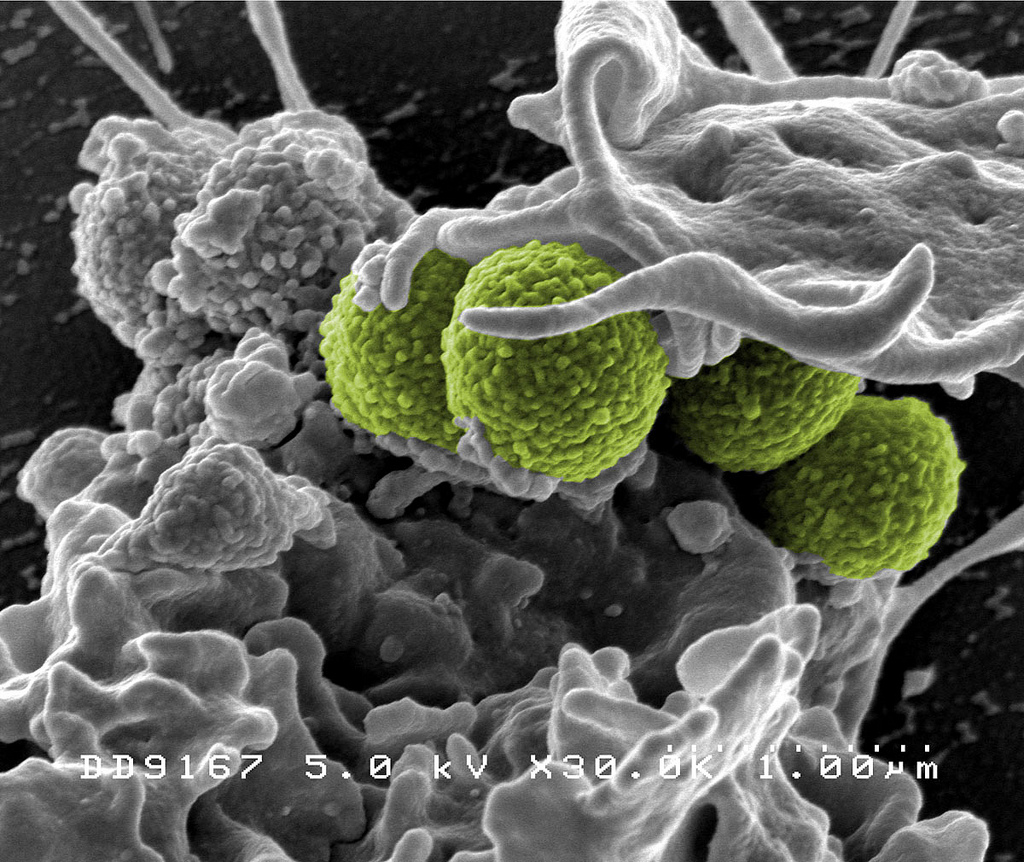Due to the proliferation of antibiotics and the careless disposal of these drugs into the environment, many drug-resistant strains of bacteria have started popping up. Aptly called Superbugs, these microorganisms have become such a major threat that scientists are now considering crazy solutions. Among them is to use viruses to kill the bacteria with the help of artificial intelligence.
As Futurism notes, the use of viruses to treat patients infected with Superbugs is often considered a last resort. Called bacteriophage or phage, previous methods have proven to be inaccurate, which made them less reliable than conventional medicine.
Unfortunately, the current state of bacterial infection has become desperate. That’s why companies like Adaptive Phage Therapeutics are coming up with better ways to analyze the genetic data of bacteria to match them with the right phage. This is where AI comes in since the data processing capabilities of machines can significantly shorten the amount of time needed to accomplish these tasks.
Speaking to MIT Review, Adaptive Phage Therapeutics CEO Greg Merril said that time is of the essence when Superbugs infect patients. Many of them don’t have the hours or days it takes to actually sequence the genetic code of bacteria and then match them with the right treatment.
“When a patient is critically ill, every minute is important,” Merril said.
At this point, these methods are still in their infancy and are nowhere near ready to be used on humans. Clinical trials are already underway, but the rate of the spread and growth of Superbugs might spur the government to focus on this issue sooner or later. Once even the most potent antibiotics are no longer able to treat what used to be minor infections, there are going to be a lot of deaths.
The drug companies haven’t exactly advanced that far in researching new drugs to fight bacteria over the last few decades.



 Google Halts UK YouTube TV Measurement Service After Legal Action
Google Halts UK YouTube TV Measurement Service After Legal Action  FDA Adds Fatal Risk Warning to J&J and Legend Biotech’s Carvykti Cancer Therapy
FDA Adds Fatal Risk Warning to J&J and Legend Biotech’s Carvykti Cancer Therapy  NASA Faces Major Workforce Reduction as 20% of Employees Prepare to Leave
NASA Faces Major Workforce Reduction as 20% of Employees Prepare to Leave  Tabletop particle accelerator could transform medicine and materials science
Tabletop particle accelerator could transform medicine and materials science  Meta Stock Surges After Q4 2025 Earnings Beat and Strong Q1 2026 Revenue Outlook Despite Higher Capex
Meta Stock Surges After Q4 2025 Earnings Beat and Strong Q1 2026 Revenue Outlook Despite Higher Capex  SpaceX’s Starship Completes 11th Test Flight, Paving Way for Moon and Mars Missions
SpaceX’s Starship Completes 11th Test Flight, Paving Way for Moon and Mars Missions  Pentagon and Anthropic Clash Over AI Safeguards in National Security Use
Pentagon and Anthropic Clash Over AI Safeguards in National Security Use  Eli Lilly’s Inluriyo Gains FDA Approval for Advanced Breast Cancer Treatment
Eli Lilly’s Inluriyo Gains FDA Approval for Advanced Breast Cancer Treatment  China Approves First Import Batch of Nvidia H200 AI Chips Amid Strategic Shift
China Approves First Import Batch of Nvidia H200 AI Chips Amid Strategic Shift  Trump and Merck KGaA Partner to Slash IVF Drug Costs and Expand Fertility Coverage
Trump and Merck KGaA Partner to Slash IVF Drug Costs and Expand Fertility Coverage  OpenAI Reportedly Eyes Late-2026 IPO Amid Rising Competition and Massive Funding Needs
OpenAI Reportedly Eyes Late-2026 IPO Amid Rising Competition and Massive Funding Needs  Trump Signs Executive Order to Boost AI Research in Childhood Cancer
Trump Signs Executive Order to Boost AI Research in Childhood Cancer  CDC Vaccine Review Sparks Controversy Over Thimerosal Study Citation
CDC Vaccine Review Sparks Controversy Over Thimerosal Study Citation  SpaceX Starship Explodes in Texas During Test, Citing Nitrogen Tank Failure
SpaceX Starship Explodes in Texas During Test, Citing Nitrogen Tank Failure  Blue Origin’s New Glenn Achieves Breakthrough Success With First NASA Mission
Blue Origin’s New Glenn Achieves Breakthrough Success With First NASA Mission  Astronomers have discovered another puzzling interstellar object − this third one is big, bright and fast
Astronomers have discovered another puzzling interstellar object − this third one is big, bright and fast 































